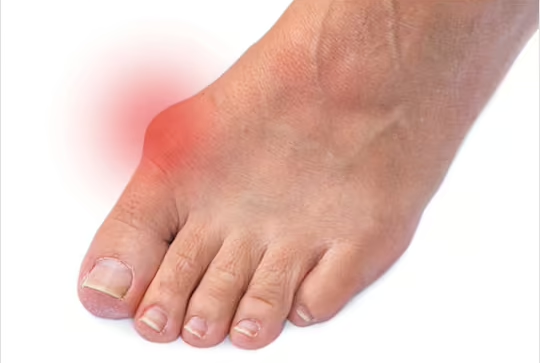
Gout
Gout is a type of arthritis that causes sudden pain, swelling, and redness in the joints, most often in the big toe. It happens when there is too much uric acid in the blood, which forms sharp crystals in the joints.
This can be triggered by eating certain foods like red meat, seafood, and alcohol, or by being overweight, having family history, or other health problems.
A gout attack can start suddenly, often at night, causing the joint to feel hot, tender, and very painful. Treatment usually involves medication to ease pain and swelling, along with lifestyle changes like eating healthier, drinking plenty of water, and staying active.
If gout keeps coming back in your feet, a podiatrist can help by giving advice on foot care, suitable footwear, and ways to avoid long-term damage.
Book yourself an assessment with one of our podiatrists and we will be happy to help!